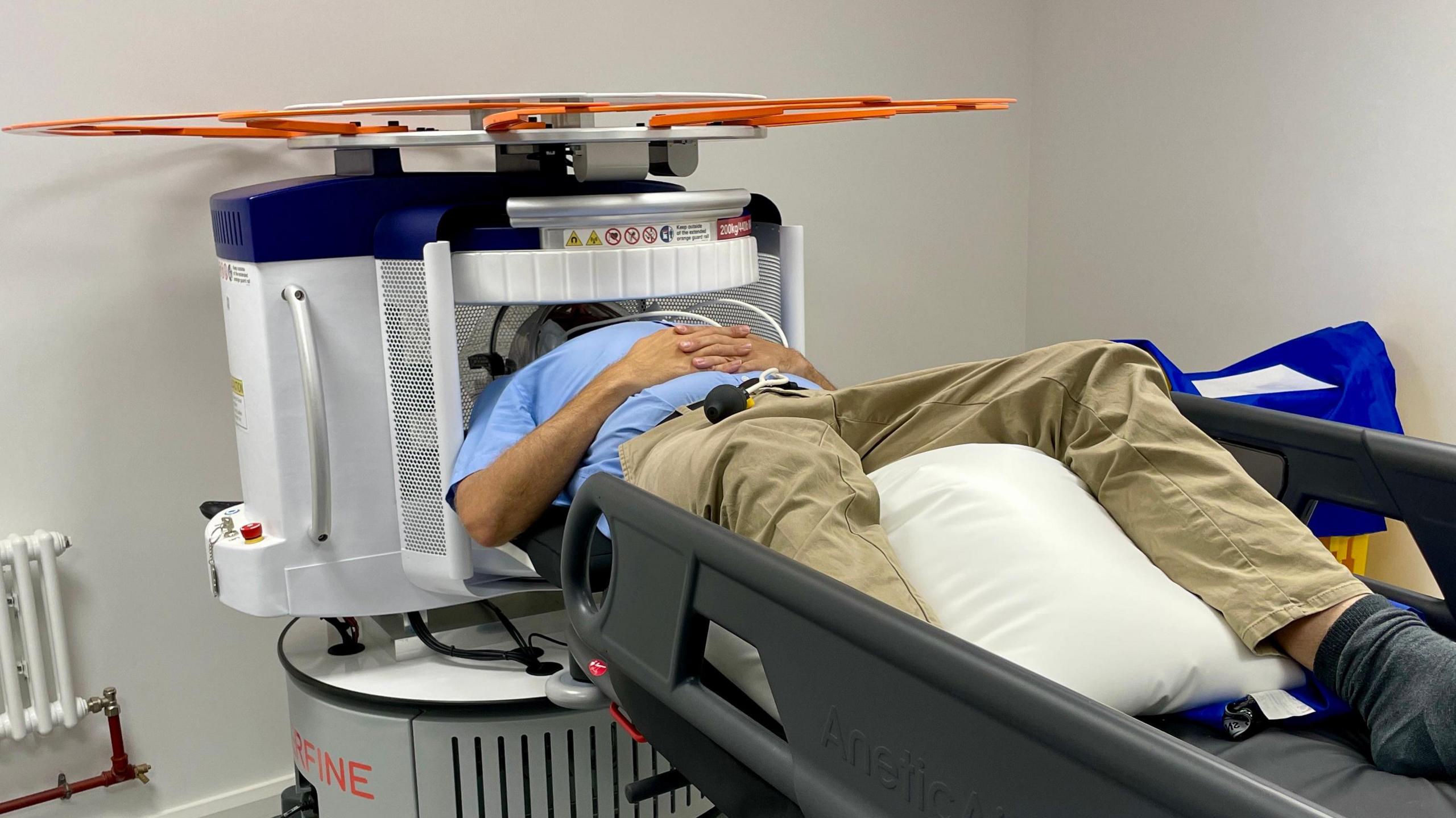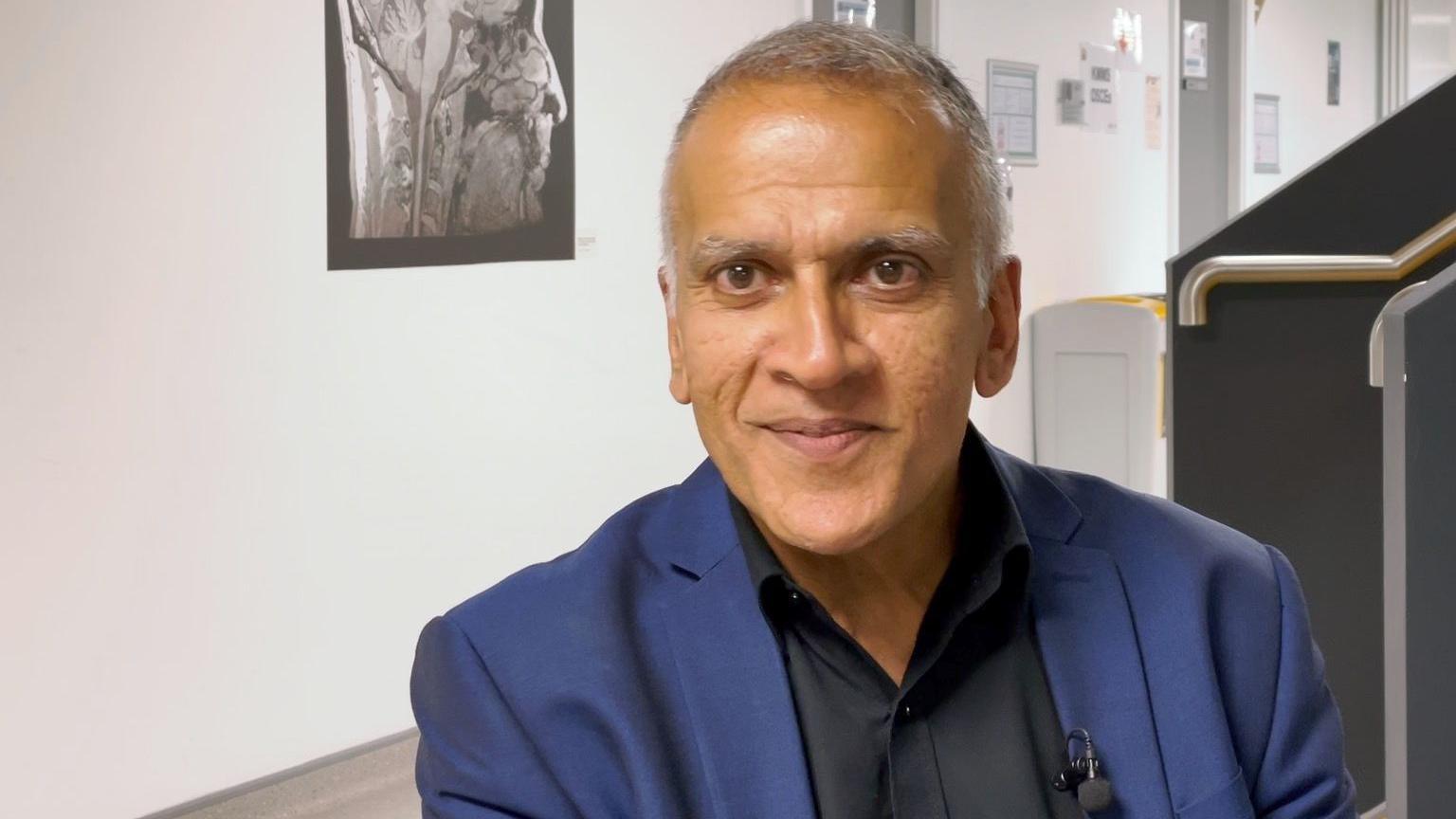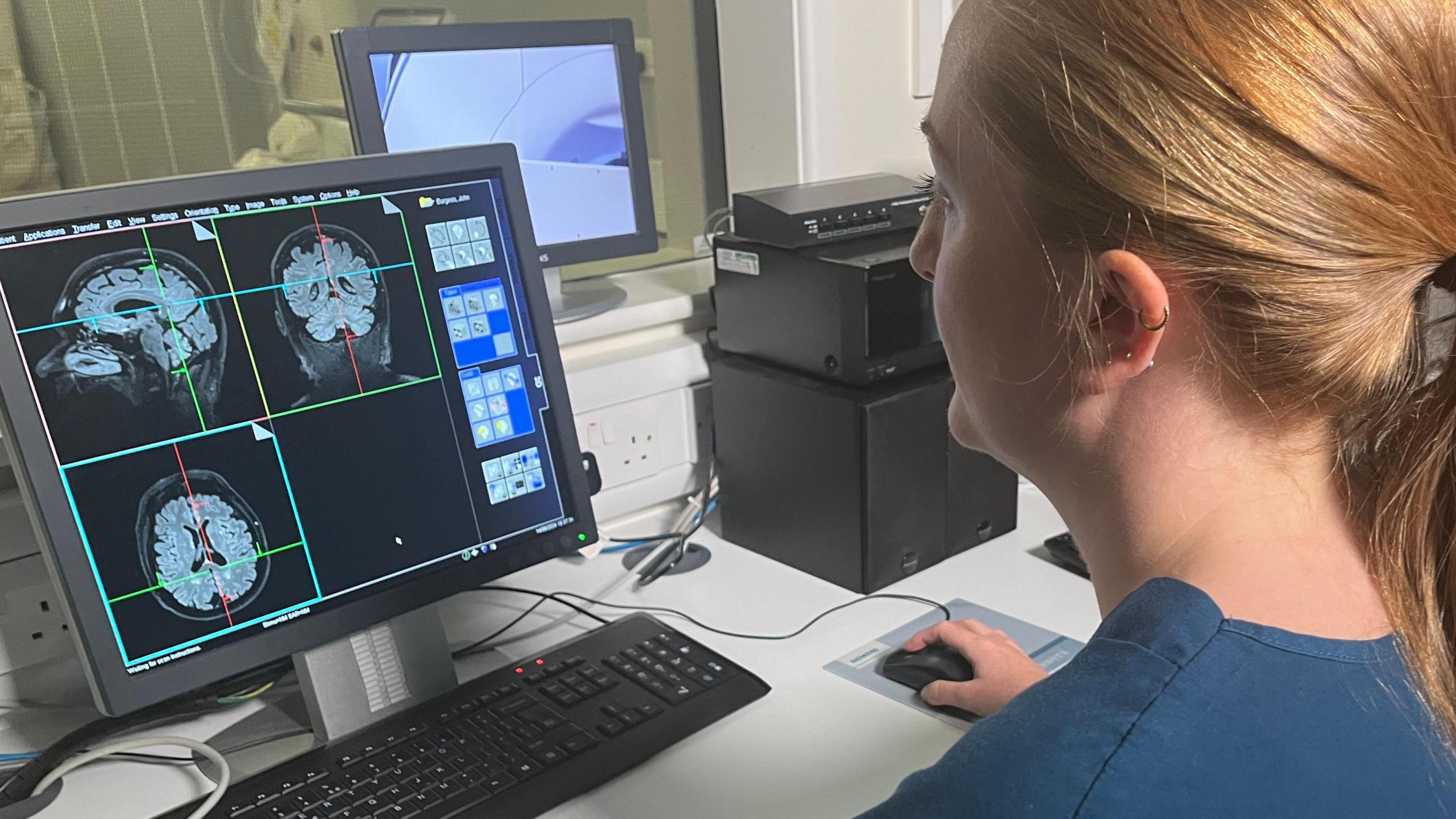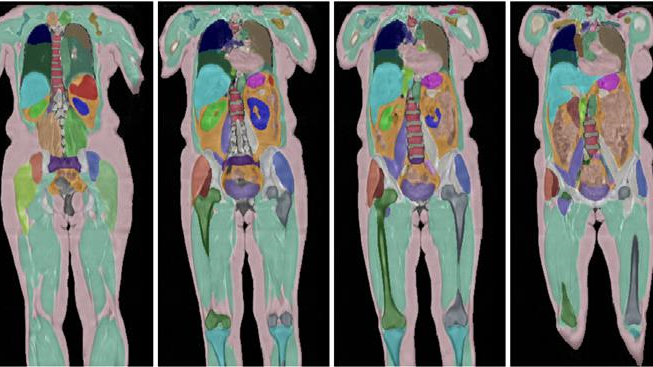New brain scanner could speed up dementia diagnosis

New low-field brain scanners could revolutionise dementia diagnosis, says a health trust
- Published
A pioneering brain scanner, one of the first to be owned by an NHS trust in England, is being trialled in Kent to improve dementia diagnosis and mental health research.
The low-field MRI scanner is smaller, cheaper, and more portable than traditional machines, and could be used in community clinics for faster, more accessible assessments.
Led by the Kent and Medway NHS and Social Care Partnership Trust (KMPT), with academic partners, the research aims to combine the scanners with AI to match the image quality of standard MRI scans.
Prof Sukhi Shergill, from KMPT, believes the scanner could be "revolutionary" and lead to quicker dementia diagnosis.
He said it was "currently one of the biggest challenges we face in healthcare".
Experts say low-field scanners have the potential to replace standard brain scanning techniques and transform early diagnosis and treatment strategies for mental health conditions.
Modern MRI scanners often require specific power and cooling infrastructure and are sensitive to vibrations and some magnetic fields, which means they are usually housed in specially designed hospital rooms.
The new scanners produce lower quality images but combined with AI software they are capable of matching the image quality of larger, more expensive machines.

Prof Sukhi Shergill is interested in images of neural networks in the brain of patients who may be mentally ill
In his role as director of research for KMPT and co-director of research at KMMSS, Prof Shergill said having smaller scanners in local communities meant they could access "almost everybody in Kent".
"It's a revolutionary kind of idea to go to put these low field scanners much more locally to people," he said.
It is hoped the trials would also be a be a "significant step forward in speeding up dementia assessments".
Dr Joanne Rodda, a senior lecturer at Kent and Medway Medical School (KMMS) and consultant psychiatrist at KMPT, is researching the scanners' ability to help with early diagnosis of dementia.
She said: "Low-field scanners could potentially be offered more widely, like in community memory clinics, providing more timely results, improving patient experience."
The collaboration between KMPT, KMMS, and Canterbury Christ Church University aims to support innovative research to enhance the health and well-being of communities in Kent and Medway.
Follow BBC Kent on Facebook, external, on X, external, and on Instagram, external. Send your story ideas to southeasttoday@bbc.co.uk, external or WhatsApp us on 08081 002250.
Related topics
Related stories
- Published26 August 2024

Related stories
- Published15 July
